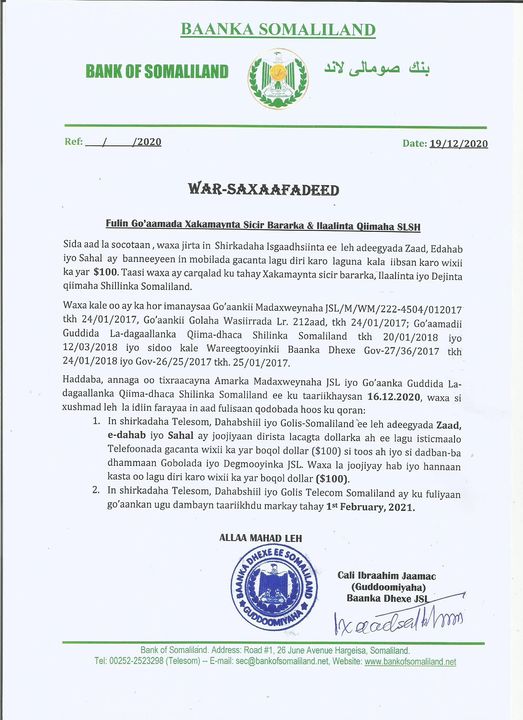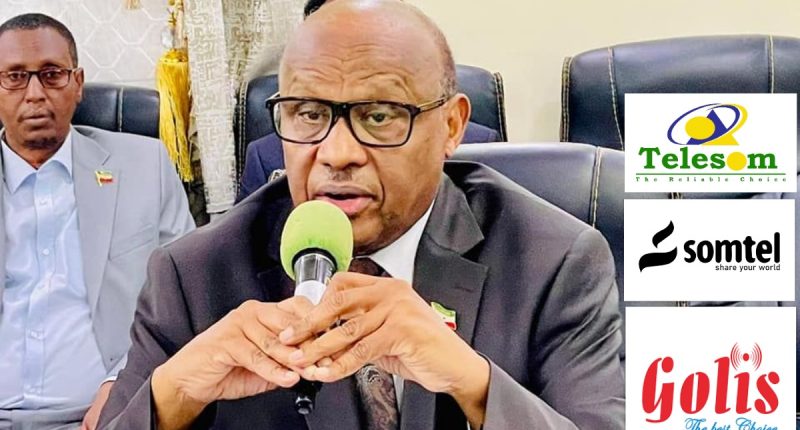In a press release, Somaliland’s Central Bank has requested that the nation’s mobile money operators comply with the government’s monetary policies and measures intended to prevent currency inflation.

The bank’s latest directive comes at a time when the majority of the users of these mobile money platforms lack the ability to use less than 100 US dollars has already been restricted. However, a Zaad clone service known as Sahal and operated by Golis has not implemented the bank-ordered restriction.
Businesses and consumers have developed a simple loophole to utilize less than 100 US dollars on Zaad and e-Dahab mobile money platforms.
In a nutshell, one user sends the other $100+[the transaction amount], the other user returns the $100 to the sender. Although it is predicated on one of the users having a balance greater than $100, this simple loophole has allowed users to get around the bank-imposed restriction on the transaction amounts.
Although a large percent of Somaliland’s population are considered unbanked, most have access to mobile money services through their phone carriers.
Somaliland has been widely praised for its adoption of mobile money.
Zaad operated by Telesom, the telecom company that dominates Somaliland’s telecommunication sector and by extension its mobile money service. e-Dahab owned by Dahabshiil is a distant second.
Currently, there is no carrier interoperability between Telesom and Somtel in Somaliland and as a result, electronic transactions are restricted to either Zaad or e-Dahab.
A test of Zaad and e-Dahab mobile money service to send less than 100 US dollars has not been unsuccessful.
This article first appeared in the Somaliland Chronicle and is republished with permission.










Comments are closed.